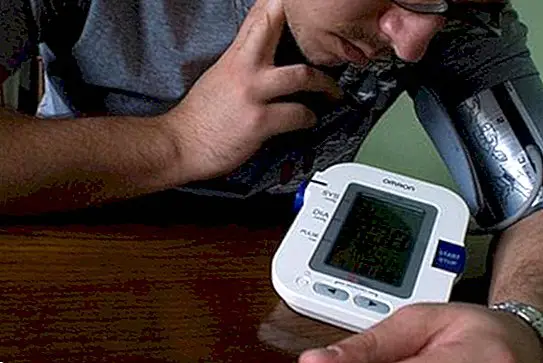Allergy to makeup and cosmetics: how to identify it and what to do
There are many allergies that exist and their classes very diverse, but if some time ago you have swelling, redness, grain or itching in the face, most likely it is a product of makeup, especially if you are a woman.
Makeup allergy is very common for those who suffer from other common allergies, such as Mites, animals and flowers. It usually happens when you are prone to suffer these more frequent allergies and can lead to new allergies like this.
So many people who suffer from this allergy to makeup think they can not make up and for some is a problem because most women do not leave your home without at least wearing the mascara. To solve this problem, there are many creams, ointments and lotions composed of elements that mainly favor people with this allergy.

What is makeup allergy and what are its causes?
Believe it or not, the allergy to makeup and cosmetics is very common and common, although you may never have suffered any problem of this type.
In most cases they are about contact allergies, and its causes can be quite varied: by the composition of the makeup itself, by applying them in sensitive areas, by the number of hours you have applied them, or by using them in places other than those recommended by the product itself .
However, here are the most common causes of makeup allergy:
- Continuous use of the product:When you use a makeup or cosmetic for a long time, and continuously, it is possible that some sensitivity of the skin occurs, arising at any given time an uncomfortable and annoying allergic reaction. This is what usually happens, for example, with liquids for contact lenses.
- For using it longer than it should:If the cosmetics and make-up have a certain date on the packaging, it is due to the fact that, once this date has passed, some product contamination may occur, mainly due to the appearance of excess bacteria that can then be produced by contact with the skin. dermatitis. To find this recommendation date on the package you should look for a symbol with a number followed by the letter 'M' in an open container. Indicate the number of months that you will be able to use it once it is open.
What are the signs of makeup allergy or cosmetics?
The most common symptom or signal is the contact dermatitis, which as we will see in the next section, tends to produce an annoying and uncomfortable irritation of the skin, in addition to redness, dryness and inflammation.
In addition, small blisters, stinging and even small fissures may also appear on the skin.

Main symptoms of makeup allergy
There are several symptoms or signs that tend to arise when a person has some type of makeup allergy. And what are those signs? The most common are the following:
- Itch:Once the product is applied, it usually causes an annoying itching, accompanied by itching that although it diminishes with the passage of time, it tends to appear every time you put on the product to which you have an allergy.
- Burning:It appears as an uncomfortable irritation, giving the sensation that the skin is burning. If for example the allergy is due to some type of eye pencil, when you apply it, the usual thing is that your eyes itch and tear.
- Grain:The appearance of acne is also very common in case of allergy. Although usually does not tend to think about makeup, but other problems not associated with it.
How to know if I have a makeup allergy?
Whenever you are going to use a new makeup or cosmetic, which you have never used before, the most appropriate is make a product test or test before applying it to the area of the body where you are going to put it on.
And how can we do it? Very simple: you just have to apply a very small amount of the product on the lower part of the wrist, and wait for 48 hours to see if an allergic reaction could have arisen. If nothing has appeared, it will mean that you do not have an allergy to that product.
What to do in case of makeup allergy? What products can be used?
If you are allergic to a certain makeup or ingredient used in it, it is best to first do an allergy test to try to discover which compound is causing the reaction.
If it is possible to identify it, you can opt directly to acquire makeup and cosmetics that do not have that ingredient.But if this is not possible, the most useful thing is to try to change the makeup or cosmetic for a similar one specific for people with sensitive skin.
We recommend creams or lotions that are composed mainly of ingredients and created especially for people with makeup allergy, are products hypoallergenic, without aromas previously proven to allergic people to avoid later problems. ThemesSkin allergies



